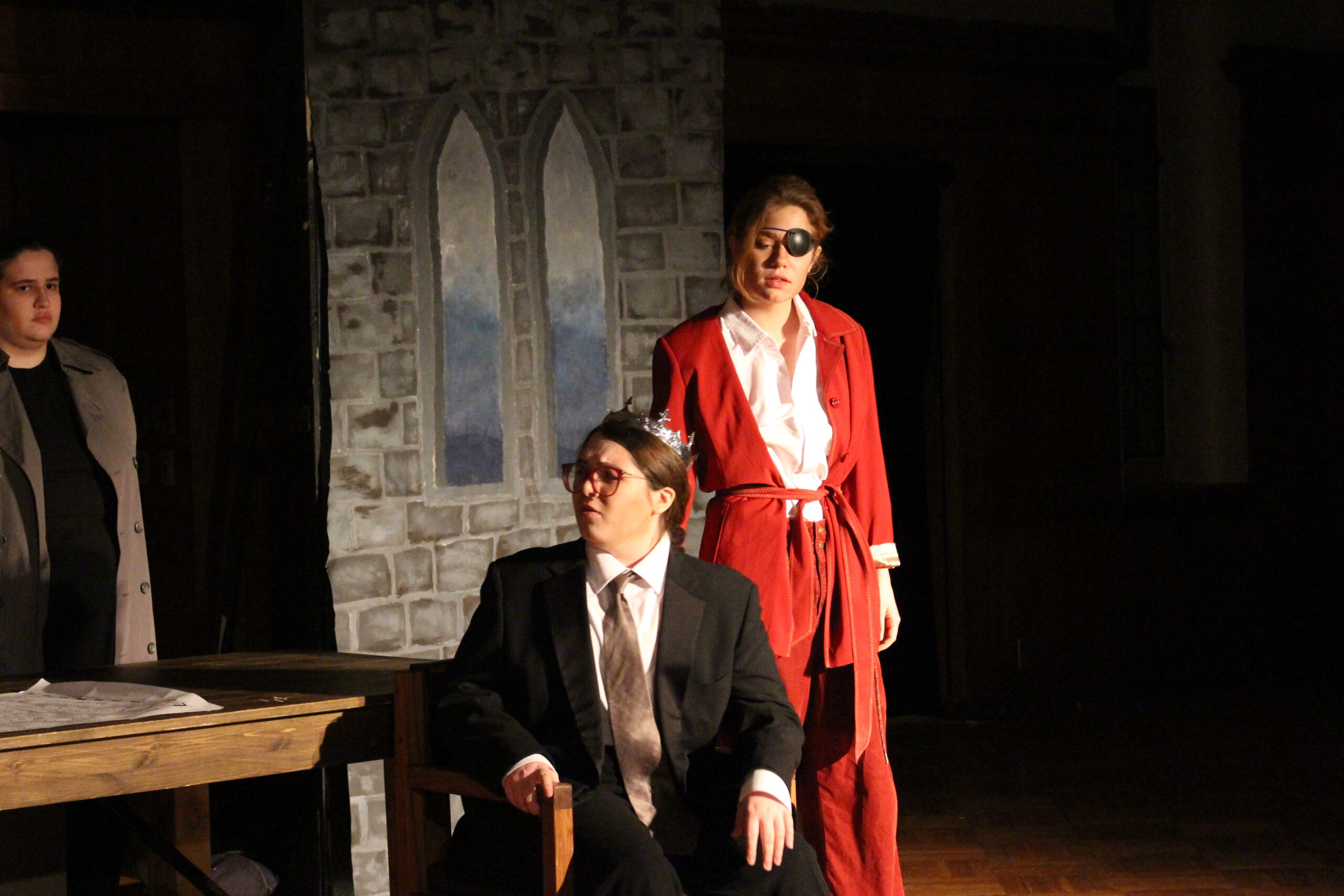On April 10, Bryn Mawr’s Shakespeare Performance Troupe (SPT) opened their spring production of King Lear in Rhoads Dining Room with a fresh, stylized take. Set in a 1940s-inspired world, the production uses period costuming to full effect: characters don trench coats, suits, and classic dresses. Regan (Bina Lee ‘25) wears a shirtwaist dress, while Goneril’s (Margaret Schedler ‘27) pearls become a token of affection she gives to Edmund (Plummy Carter ‘27).
The play begins with Lear’s ill-fated decision to divide his kingdom among his three daughters: Regan, Goneril, and Cordelia (Dinah Whitmarsh ‘28). He asks each to profess their love for him, and while Regan and Goneril are eager to flatter him, Cordelia replies honestly, which leads to her banishment. This decision sets the stage for betrayal, political chaos, and Lear’s ultimate descent into madness.
Lear is played by first-year student Grace Muller, whose performance carries the emotional weight demanded by the role. However, two standouts of the evening were Char Gilman-Boggs ‘27 as the sadistic Cornwall and Faith Mayhew ‘25 as the fiercely loyal Kent.

Directed by Logan Griffin, the show remains largely faithful to Shakespeare’s text, though, as Griffin notes in his Director’s Note, significant cuts were made. Griffin also emphasizes the play’s often-overlooked comedic elements. He recalls being surprised, when first reading King Lear as a junior, that few others found it as funny as he did. This lens brings new energy to a work typically associated with despair and downfall, as characters like the fool (also played by Dinah Whitmarsh ‘28) provide comic relief.
Still, King Lear is ultimately a tragedy. The play ends in death, destruction, and madness, and this production does not shy away from the gruesome. The infamous scene in which Gloucester (Grace Thomas ‘27) has his eyes gouged out by Cornwall is particularly brutal, featuring staged violence and ample fake blood.
SPT’s commitment to both classical text and progressive practice is evident throughout the production. According to the troupe’s constitution, SPT aims “to carry forward dynamics of subversion we find throughout Shakespeare and other theatrical works, while critically engaging with an often complex canon.” The troupe also recognizes the racist history of Shakespearean theatre and of SPT itself and seeks to foster inclusivity through casting, creative choices, and interpretation.

In King Lear, this mission takes shape in the gender-swapped role of Kent, traditionally played by a man, which is reimagined here as a woman who disguises herself as a man to remain by Lear’s side after being banished.
According to SPT’s website, King Lear has not been performed by the troupe in the last 25 years, making this a particularly notable production. It is SPT’s second show of the semester, following Doctor Faustus which ran earlier this month. Lear will run for three performances: April 10 and 11 at 7:30 p.m., with a matinee on April 12 at 2 p.m.
With strong performances, thoughtful direction, and a sharp aesthetic, SPT’s King Lear is a compelling, blood-soaked reminder of why this tragedy endures—and how student theatre can make it feel new.
